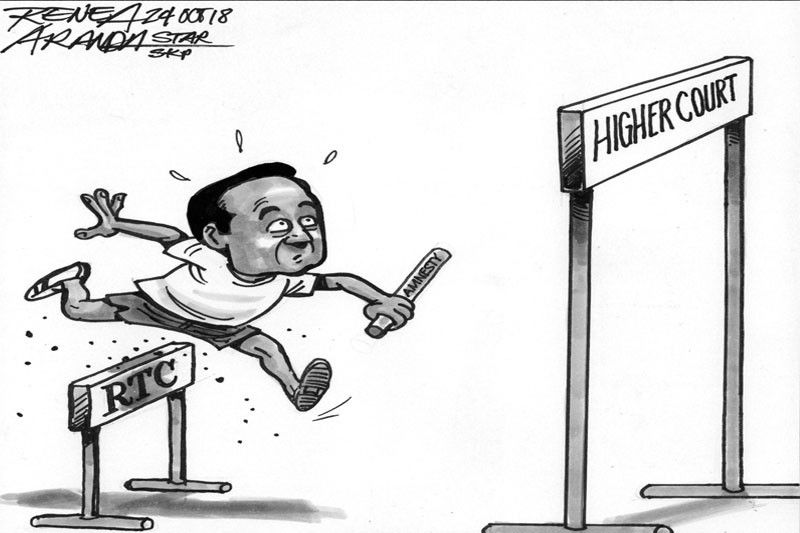EDITORIAL - Confusion

No arrest warrant and hold departure order were issued for Sen. Antonio Trillanes IV and the coup d’etat case against him was deemed closed. Trillanes hailed the ruling of Makati Regional Trial Court Branch 148 Judge Andres Bartolome Soriano, calling it a victory for justice, democracy and the rule of law.
But Soriano’s ruling became confusing when it came to the question of amnesty for Trillanes, who led a mutiny and the siege of a Makati hotel to demand the ouster of Gloria Macapagal Arroyo as president.
While Soriano ruled that Trillanes applied for amnesty and admitted his guilt, the judge also sustained the “factual bases” for President Duterte’s Proclamation No. 572, which voided the amnesty precisely because of the alleged lack of those items.
This part of the decision is confusing enough for the Department of Justice to seek clarity from the court. Yesterday the DOJ announced plans to seek a partial reconsideration of the ruling. Solicitor General Jose Calida, for his part, said the government is considering elevating the case to the Court of Appeals. The Supreme Court is expected to have the final say on the issue.
In the confusion, it is unclear if the Armed Forces of the Philippines will reopen court martial proceedings against Trillanes, who quit the military when he entered politics.
Amid the confusion, members of the judiciary and government prosecutors must consider the impact of this case on the integrity of the amnesty process and peace efforts. These are not trivial concerns, considering that the Duterte administration is negotiating peace with Islamic separatists and has not completely abandoned talks with communist rebels. Previous administrations also granted amnesties to Islamic separatists and rebel soldiers. A number of them are now in government, including the AFP chief of staff, the chairman of the Metropolitan Manila Development Authority and the newly appointed director of the Bureau of Corrections.
The DOJ chief is right; this is not the end of this controversy. In crafting jurisprudence on the issue, magistrates must bear in mind that a precedent is being set, whose consequences on national life will be felt long after their retirement from the judicial service.
- Latest
- Trending



























